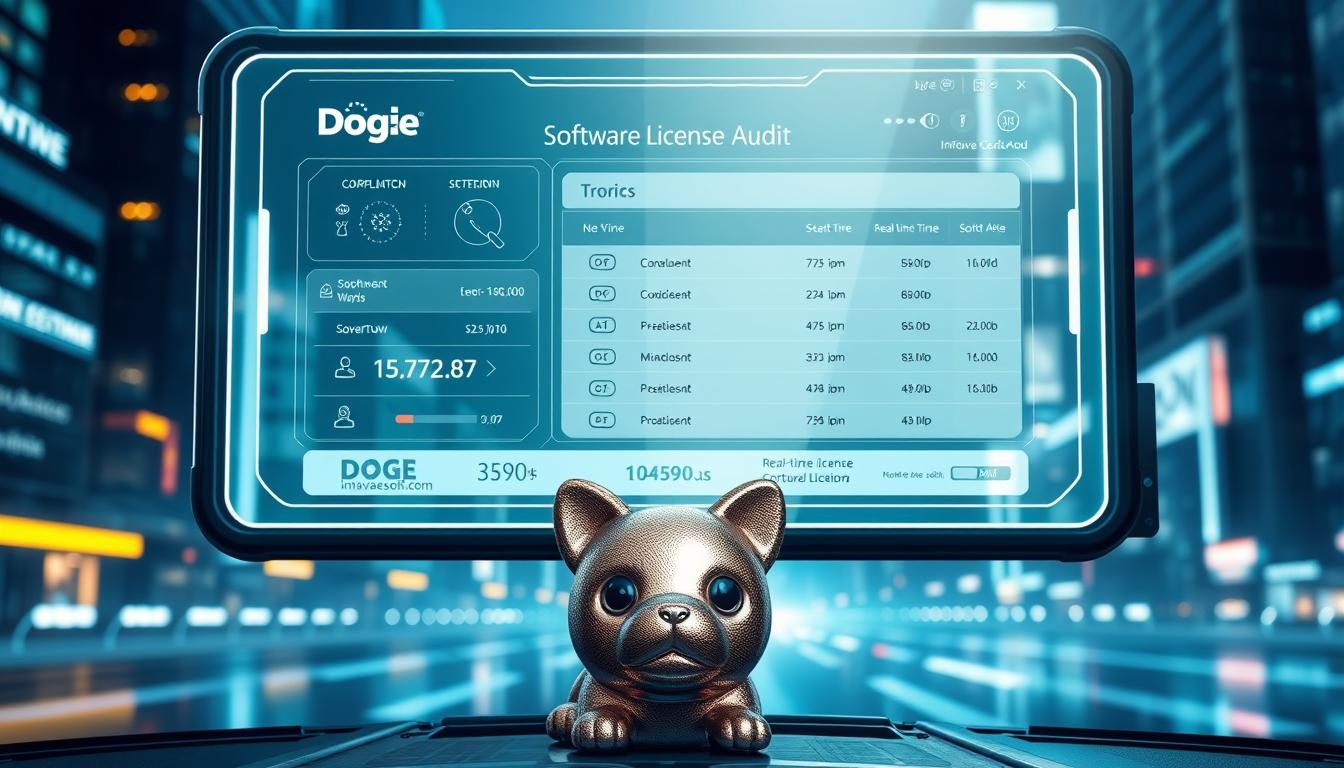
DOGE Audit Exposes HUD’s $11K Adobe License Waste
In today’s world, software licenses play a crucial role in ensuring that businesses, organizations, and government agencies function efficiently and legally. However, improper management of these licenses can lead to significant wastage, affecting the organization’s budget and operational efficiency. One such instance of software license mismanagement was uncovered by a DOGE audit, which exposed that the U.S. Department of Housing and Urban Development (HUD) had wasted over $11,000 on Adobe software licenses that were either unused or underutilized. This article delves into the details of the DOGE software licenses audit of HUD, the implications of such waste, and what it means for public sector software management moving forward.
What is DOGE’s Role in Software License Audits?
The Department of Government Audits and Evaluation (DOGE) plays a crucial role in reviewing the effectiveness and accountability of government operations, including how taxpayer money is spent. One of their main functions is conducting audits on various government departments to ensure that funds are being used effectively. In this particular case, DOGE conducted a thorough software license audit of HUD, uncovering the massive waste in Adobe software licenses.
The $11K Adobe License Waste at HUD
As part of its ongoing mission to scrutinize government spending, DOGE carried out a comprehensive audit of HUD’s software licenses. This audit revealed that HUD had purchased Adobe software licenses for its staff, but many of these licenses were going unused. These licenses were either purchased in excess or allocated to individuals who no longer required access to the software. Despite the significant amount of taxpayer dollars tied up in these unused or underused licenses, HUD continued to maintain them, resulting in an $11,000 waste.
In particular, the licenses in question were for Adobe products such as Adobe Acrobat and Adobe Creative Cloud. While these are powerful tools widely used in business, their cost can add up quickly if not properly managed. HUD’s failure to regularly assess its software usage led to the accumulation of unnecessary licenses, representing a direct financial loss.
The Importance of Efficient Software License Management
Efficient software license management is essential for any organization, particularly government agencies like HUD. When software licenses are not correctly tracked and managed, organizations risk over-purchasing or underutilizing software, leading to financial waste. In the case of HUD, the $11,000 worth of unneeded Adobe software licenses could have been better allocated to other areas of the department or even returned to the software vendor for a refund or credit.
Software license management also plays a key role in legal compliance. By ensuring that only the necessary number of licenses are purchased and that they are being used correctly, organizations can avoid potential legal issues related to software piracy or violation of license agreements. The DOGE audit highlights the need for government agencies to take software license management seriously to avoid these pitfalls.
Implications of the DOGE Audit for HUD
The DOGE audit’s revelation about HUD’s $11K Adobe license waste is a wake-up call for both the agency and other government departments. For HUD, it shows that there is a need for a more stringent process for monitoring and evaluating software needs. This means implementing periodic audits to ensure that software licenses are being used efficiently and eliminating the practice of over-licensing.
Moreover, the audit emphasizes the importance of adopting modern software asset management (SAM) tools and processes. These tools can help government agencies track software usage, prevent the over-purchasing of licenses, and optimize existing permits. This could streamline operations, reduce costs, and ensure more effective use of taxpayer money.
Recommendations from the DOGE Audit
In response to the findings, DOGE made several recommendations to HUD for improving its software license management practices. These recommendations include:
Implementing Regular Audits
One of the key suggestions was that HUD should perform more regular software license audits to ensure that only necessary licenses are purchased and that underutilized licenses are identified and either reassigned or canceled.
Using License Management Software
The DOGE audit recommended that HUD adopt a more sophisticated software asset management system that would allow the agency to track its licenses more effectively. This system would provide real-time data on license usage and help avoid future waste.
Reviewing License Allocation Processes
HUD was also advised to review its internal processes for allocating software licenses to staff. By better understanding who needs what software, the department could ensure that licenses are assigned only to those who require them, minimizing unnecessary purchases.
Training and Awareness
The audit recommended that HUD staff be trained on the importance of software license management. This would increase awareness about the financial and legal consequences of improper license allocation, encouraging employees to be more mindful of how they use software.
Engaging with Vendors for Refunds or Credits
Given that many of the unused licenses were purchased in advance, the audit suggested that HUD engage with Adobe to inquire about the possibility of receiving refunds or credits for the unused licenses, which could help recover a portion of the wasted funds.
Broader Implications for Government Agencies
While the DOGE audit focused on HUD, the findings are not unique to this agency. Many government agencies across the country struggle with software license management, and the same issues of over-purchasing and underutilization are prevalent in various departments. As a result, the DOGE audit serves as an important reminder for all government bodies to reassess their software licensing practices.
For other government agencies, the audit encourages them to adopt more robust systems for tracking and managing software licenses. The recommendation to use software asset management (SAM) tools and perform regular audits is a call to action for public sector organizations to modernize their approach to managing software and technology resources.
The Path Forward
The DOGE software licenses audit HUD has made it clear that there is room for improvement when it comes to software license management in government agencies. By implementing the recommended measures, HUD and other government bodies can save taxpayer money, improve operational efficiency, and avoid legal risks related to software compliance. For now, HUD has acknowledged the audit’s findings and is in the process of implementing better management practices.
As technology continues to evolve and more government agencies rely on software to run their operations, software license management must become a priority. Regular audits, the use of management software, and better allocation processes are key strategies for avoiding waste and maximizing the value of technology investments.
FAQs
What is the DOGE software license audit of HUD?
The DOGE audit revealed that HUD had wasted over $11,000 on unused or underutilized Adobe software licenses.
Why is software license management critical?
Proper management prevents financial waste, ensures legal compliance, and maximizes the value of software investments.
How can HUD improve its software license management?
HUD can implement regular audits, use software asset management tools, and improve internal processes for license allocation.
What were the main findings of the DOGE audit?
The audit exposed significant waste in the form of unused Adobe licenses, totaling $11,000 in unnecessary expenditure.
What steps are being taken to address the findings?
HUD is reviewing its software license practices, adopting more efficient tracking systems, and seeking potential refunds or credits for unused licenses.
Conclusion
The DOGE software licenses audit of HUD serves as an essential lesson in the efficient management of software resources. The $11,000 waste in Adobe licenses underscores the need for government agencies to implement more robust systems for tracking software usage and managing licenses. By adopting regular audits, utilizing software asset management tools, and improving internal allocation processes, HUD and other government agencies can avoid similar issues in the future, ultimately saving taxpayer money and improving operational efficiency.




